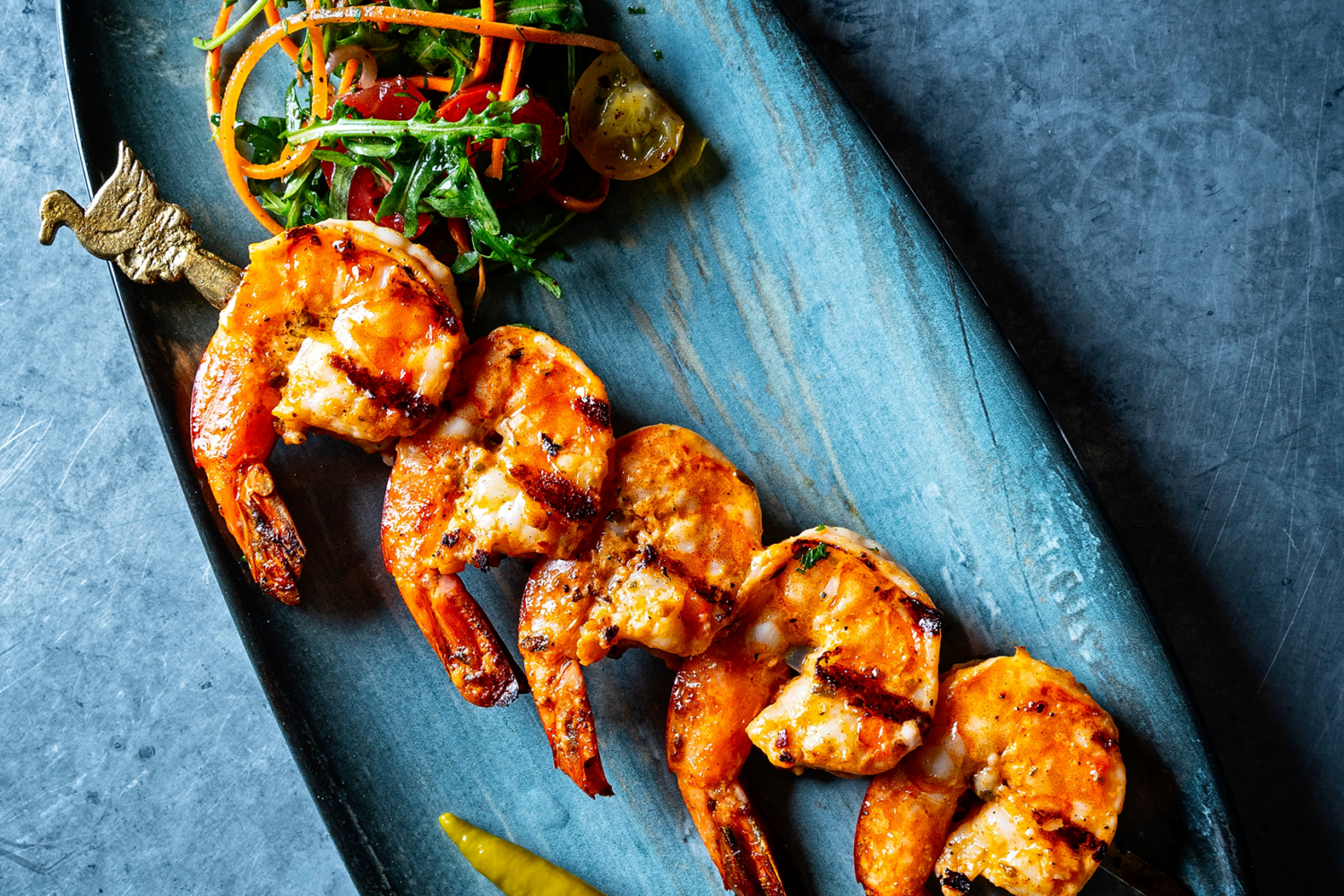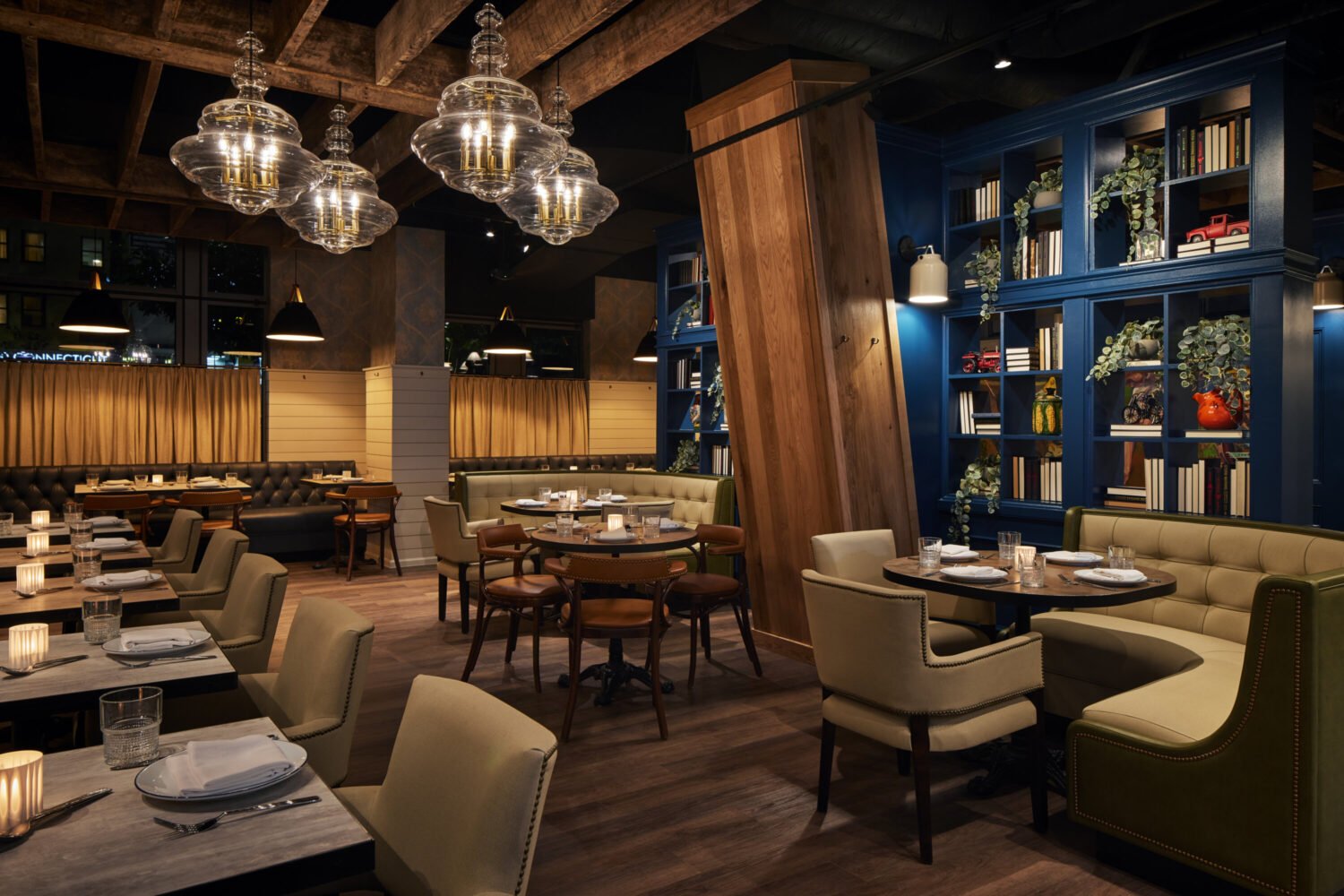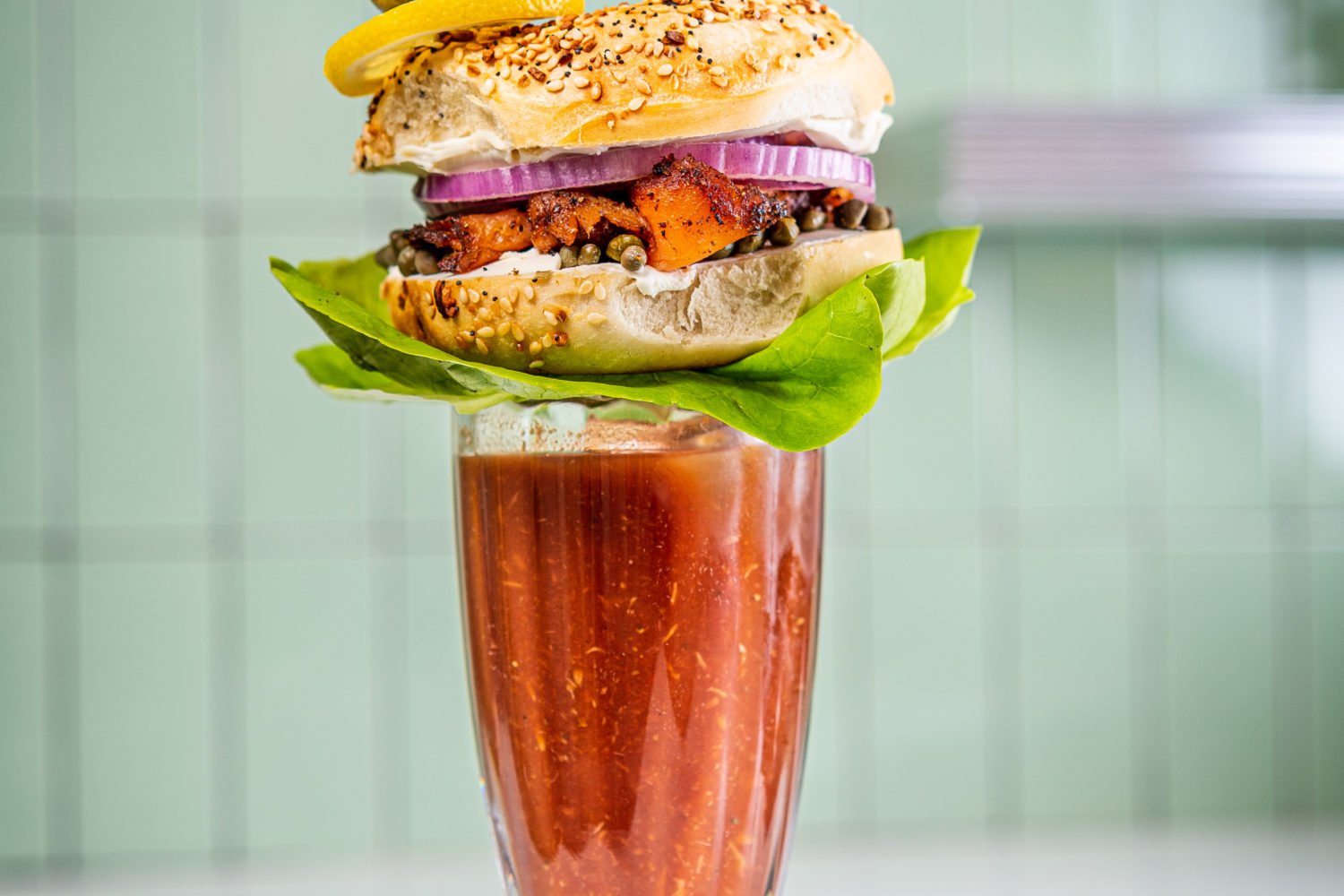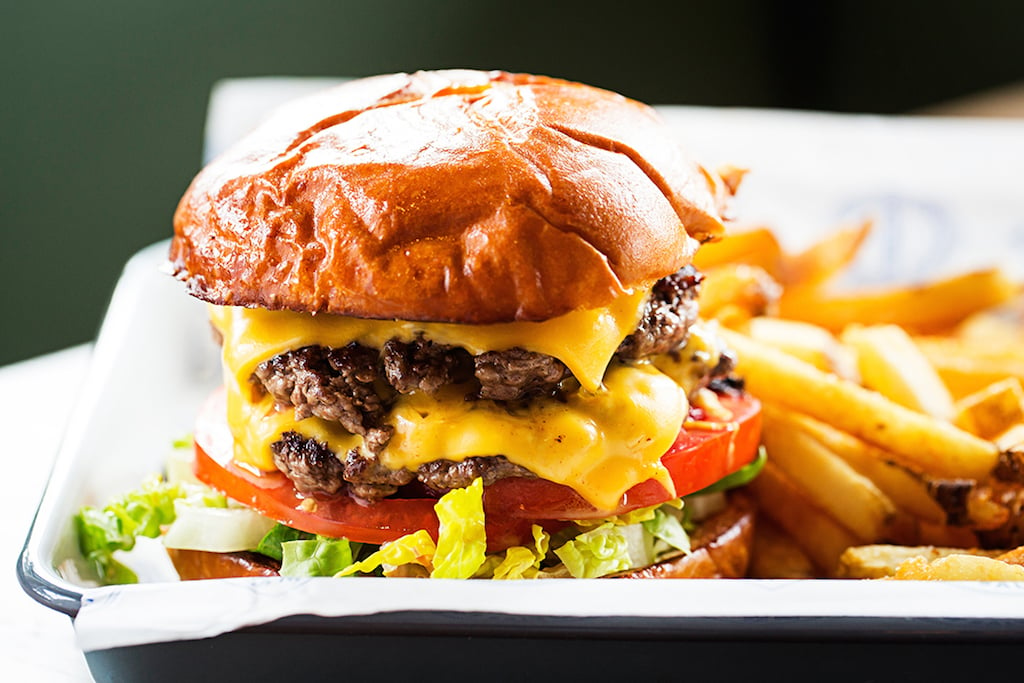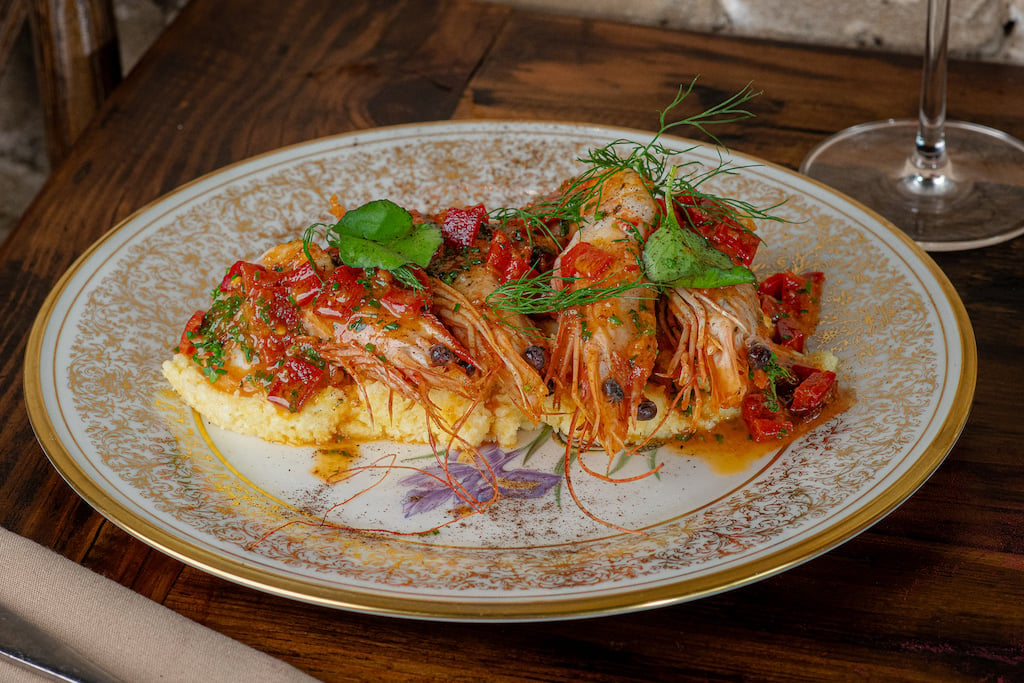February 2006

The fried-egg sandwich on the menu at Foti's seems at first a toss-off, the kind of simple dish that jaded palates rejoice at for the honesty and purity of its ingredients and approach. Chef Frank Maragos tops a garlic-rubbed slice of crusty ciabatta with a thick layer of lightly cured ham from Calhoun's, the meat shop around the corner from his restaurant off Main Street in Culpeper, and an egg whose yolk seems as big and blazingly orange-yellow as a setting sun. It looks effortless, and it tastes it, too.
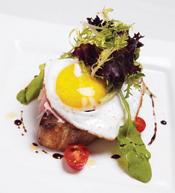
But there's more here than a young, ambitious chef reveling in the abundance of his local sources.
Before he opened Foti's in June, Maragos spent four years at the Inn at Little Washington, working his way up to executive sous chef. He began by making the canapes that arrive shortly after you're ushered to your seat. Among the nibbles he learned to perfect was a mini ham sandwich, a thumbnail-size brioche with a dab or two of ham from, yes, Calhoun's. It's a one-biter of astonishing depth and flavor–a short, sharp trumpet blow heralding the virtuoso meal to come.
The fried-egg-sandwich appetizer at Foti's seems comparatively scruffy. It's not about look-at-me artfulness; it's about digging in and enjoying some of that wonderful runny yolk. It doesn't say "ta-da." It sidles up to you and says "howdy."
The sandwich is a lot like the restaurant, which aims to reassure its diners at nearly every turn that nothing too fancy is going on, just good, simple cooking. Maragos says his fried-egg sandwich is meant to let customers know that his isn't a "stuffy, pretentious" kind of place.
It would be tempting, and delicious, to hear in those words a subtle rejection of the temple he once served–just as it's tempting to think that Maragos has declared his independence by bringing with him the Inn's sommelier, Tyler Packwood, and Sue Wilson, a former server who is now a manager at the new restaurant.
Although it's true that apprentices grow only by sloughing off many of the lessons they've absorbed, the story of Foti's is more than the story of repudiation and escape.
In many ways, it's also the story of return. Maragos grew up in Minot, North Dakota, in a large Greek family that owned a grocery, a butcher shop, and a restaurant. He was peeling potatoes and sweeping floors before he hit puberty, butchering his own meats and learning the master sauces by the time he finished high school. His rise through the culinary world has been swift, but he still says "sir" as often as a military recruit, has impeccable manners, and would be right at home in a Frank Capra film.

Something of that Midwestern idealism, of those small-town virtues, clings to Foti's–as the nickname itself clings to Maragos; Foti is a diminutive of Foteos, his given name. Sitting in the dining room on a winter's night and looking out the window at shops and street lamps all aglow, you wait for the light snow to begin falling that would complete the Currier & Ives tableau. The young staff has all the gung-ho excitement of camp counselors at the start of summer, and even their confessions of limited culinary knowledge–"I never tried brie until I came here," says one server–seem sweet and refreshing, a reminder that you are far from the put-ons of the big city.
Likewise, the cooking has a sturdiness and simplicity at odds with its pedigree, as though Maragos is determined to show only what he needs of his training to achieve his goals, and no more. These dishes aren't architectural marvels, they don't trade on daring combinations, and the first bite seldom induces the wow you might have hoped for after the trek from Washington (which can take anywhere from an hour and a half to three hours depending on the time of day). They're the culinary equivalent of still waters running deep.
The vanilla-poached lobster might be the most sigh-inducing thing on the menu, but what makes the dish memorable is not the sweet succulence of the lobster, heightened by the Chardonnay sauce that pools at the bottom of the dish, but the inclusion of johnnycakes. Resembling half-dollar pancakes, they provide an unexpectedly deep corn flavor that puts you in mind of a New England lobster bake, and a coarse-grained texture whose rusticity intensifies rather than diminishes the elegance of the dish.
Similarly, the seafood paella tempts you with its abundance of beautifully cooked shellfish, including an entire lobster, severed from but served within its brilliant red carapace–but the more you eat, the more you are taken by the care that's been lavished on its rice. Maragos cooks the jasmine grains with a couple of cardamom pods, which lends them a perfume, then teases out their creaminess by slow-cooking them in a full-flavored lobster stock until they make a kind of soupy risotto.
The cassoulet of beans in the Lamb Three Ways is what lingers in the mind, and on the tongue, long after you have packed away the last of the excellent lamb sausage and lamb shoulder.
You might expect that Maragos, having apprenticed under Patrick
O'Connell at the Inn at Little Washington, would share his master's affinity for the sumptuous embellishment, the extravagance piled atop extravagance. But he chooses the opposite tack almost every time, stripping his dishes of anything that might interfere with the single idea he's trying to convey. A breast of duck with foie gras offers no wrinkles on a by-now familiar theme, no sweet accoutrements–and the lobe of fattened liver was comparatively small–but it hardly mattered: The fan of meat was among the best I've had this past year, full of juicy savor.
If gilding the lily is a talent, so is caution. Maragos knows when to get out of the way, to trust in the power of his ingredients. It helps that nearly all his produce comes from neighboring farms. A dish of beets and goat cheese has been turning up as a starter on every other menu in the city, but seldom do you find beets as good or goat cheese as tart and creamy.
I was wary of the baked brie, being skeptical of anything laden with sun-dried tomatoes and doubting the charms of the cedar plank it had been baked on. But what might have been a shrieking cacophony of flavors is tightly harmonized. These are house-made sun-dried tomatoes, for one, and Maragos, who learned the nuances of smoking cheeses as a teenager, has enhanced, not overwhelmed, the character of the brie. I was halfway through my second crostini smeared thickly with melting brie and piled with tomatoes and red pepper before it dawned on me that I was eating a sort of reconfigured wood-grilled pizza.
Maragos allows you to come by this epiphany on your own, without any prompting from the menu or the server. He seems almost embarrassed by the notion of reinvigorating a couple of clichés when I bring it up later.
He's not above cooking a steak, either. A lot of good restaurants keep a simple slab of meat on the menu, mostly because a lot of chefs are in the habit of saving a slot for unadventurous diners. At Foti's, the waitstaff will tell you that the chef loves his barbecue rib-eye, and when Maragos makes the rounds at the end of the night in his brimless black cap, his eyes light up when someone mentions the steak. The adornments are few, but they subtly elevate an otherwise simple dish. Maragos slathers the grilled meat in a roast-tomato sauce and dresses it up with crunchy fried onions.
The lack of pretension, rare in a restaurant of any ambition, is amplified in the front of the house thanks to sommelier Tyler Packwood, a gentle, barrel-chested man who sets a tone of gracious charm. A Rockville native, Packwood has worked in two of the finest restaurants in Munich, and he presided over one of the most extensive, and expensive, wine lists in the country at the Inn at Little Washington. There's only one Bordeaux on his list, and the prices seem intended to encourage exploration and education. In this age of the double-digit glass of wine, it's a shock to find a decent red for six bucks, but you can here, and a glass of JJ Prüm Mosel Riesling–a stunning match for the lobster and johnnycakes–for $9 is cause for celebration. A bottle retails for around $24; Packwood sells it for $35.
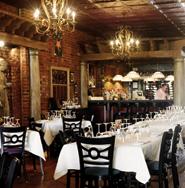
Packwood has a gift for pairing food and wine–a ten-year-old Madeira intensifies both the cocoa in the bottom layers of the surpassingly light chocolate mousse tower and the notes of orange in the top layer. Grand Marnier scented crepes in a red-berry sauce are good on their own and improved by a terrific glass of Jean Vesselle "Oeil de Perdrix" Champagne. He's happy to talk about the history of the wines, but he's not so intent on it that he forces the point. He can be chummy, he can be formal. No big deal.
On one of my visits, he slipped into a conversation at a nearby table, dishing knowledgeably about the Redskins. A season-ticket-holding sommelier–somehow, it didn't seem so strange.
Most places aim to impress you with their ambition; Foti's seems to want to reassure you of its humility. Maragos told me that having been trained at the Inn in "the illusory pursuit of perfection," he wanted to work in a place that was more relaxed and modest.
That aim no doubt accounts for the growing popularity of the place among townies, a mix of young and old, some of whom feel no compunction at all about strolling into the dining room in plaid shirts. But the goal of simplicity in all things, of clarity and directness, has its pitfalls. In cooking it works only when everything locks together perfectly, when every element is in balance. A roast chicken breast, for instance, was overwhelmed by too much thyme. A dish of barbecue shrimp was overcooked, a poor match for its delectably light garlic drop-biscuit and peppery, vinegary gravy. And on my third visit, I was disappointed to find that two of my favorite dishes, the fried-egg sandwich and the Lamb Three Ways, were not quite as special as they had been the first time around, as though the calibrations in the kitchen were slightly off.
There are times I find myself wanting the place to assert its ambitions more fully. The menu is small and full of duplication, as though unwilling to venture too much too soon in a conservative town. Three lobster dishes. Two steak dishes. Two duck-and-foie-gras dishes. A chicken breast.
Still, though these reservations found their way into my notebook, I can't say they discolored my experience–and the fact that I couldn't recall them except by later consulting my notes says a lot about Foti's ability to ease you out of your worldly cares and concerns. What I didn't forget was the way I was always met at the door with a genuine smile; the way I was always given a précis of a dish if I asked for it but was never burdened by exhaustive descriptions of each and every ingredient; the way my guests and I ate well and drank well and yet always found ourselves shaking our heads at how small the check was; the way someone on staff was ready to help me into my coat every time I was ready to leave.
Actually, I can't say I was ever ready to leave, to step out of the antique tableau. The apprentice may not be the perfectionist that his master, O'Connell, is, and his break with his recent past feels deliberate and decisive. But he has taken to heart the master's greatest lesson. He has created a restaurant that is as transportive as it is delicious–a retreat to a quieter, humbler era.




